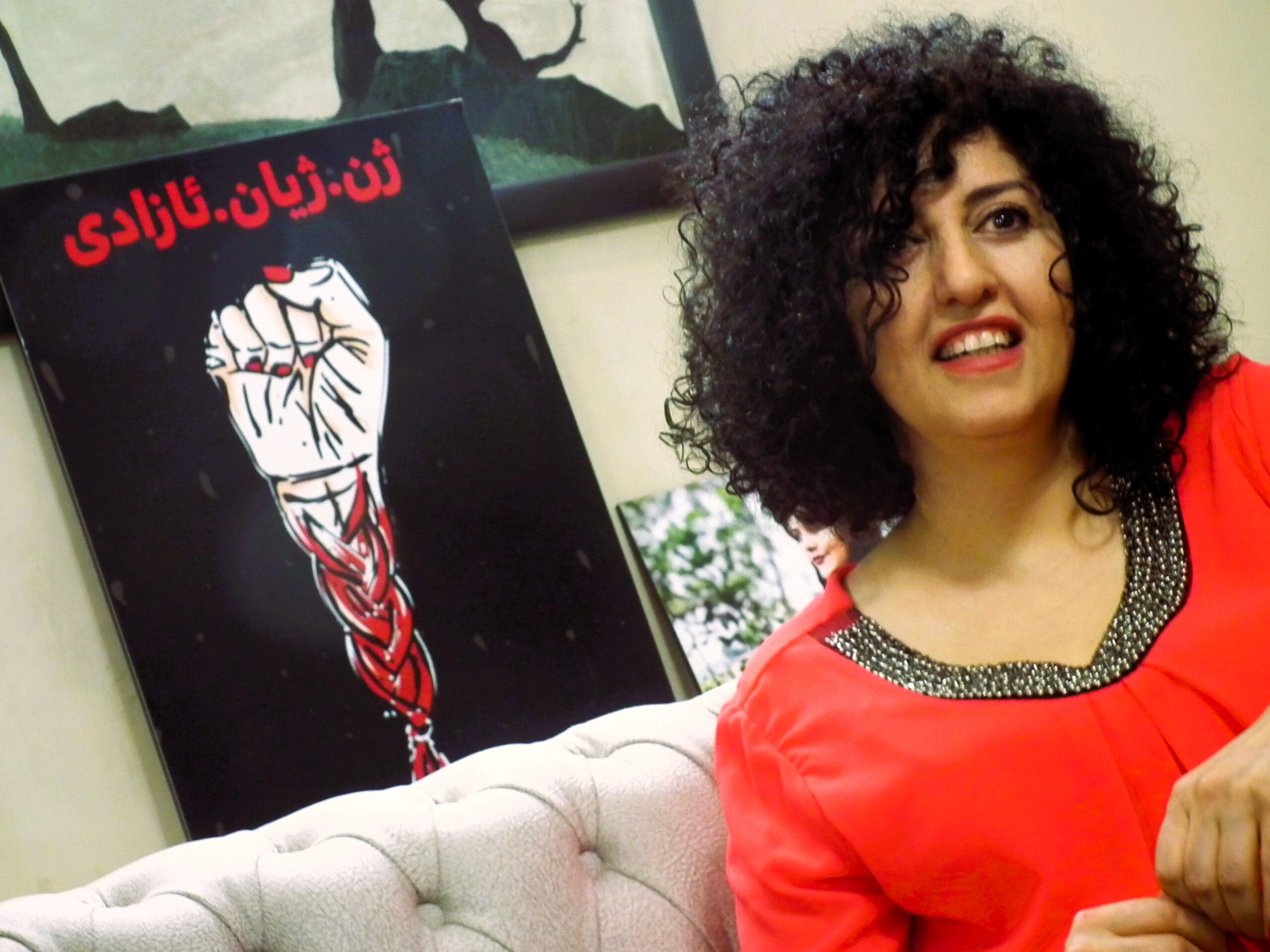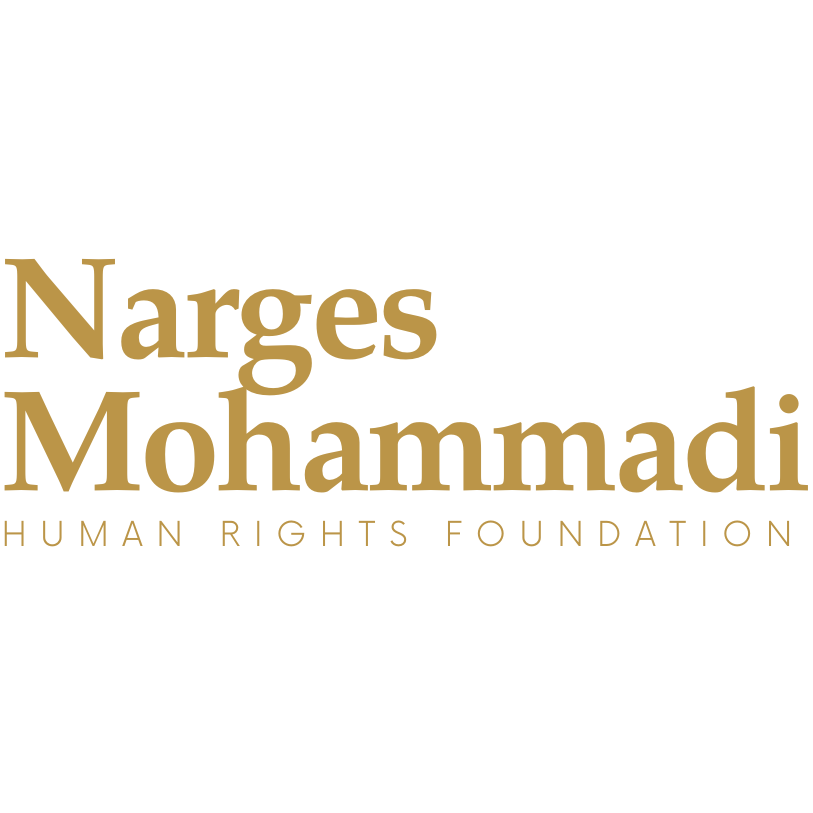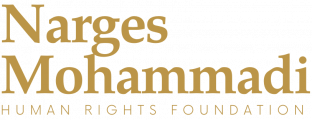
Narges Mohammadi to La Stampa Italy :“We will not go back. We move forward together.”
“We will not go back. We move forward together.”
Interview with Narges Mohammadi by La Stampa, Italy
Published on January 17, 2025
“It is time for international human rights organizations and the United Nations to put pressure on the Islamic Republic to release all political and ideological prisoners.”
The news of the arrest, solitary confinement, and eventual release of Italian journalist Cecilia Sala once again highlights the reality that journalists, reporters, and media professionals in Iran are constantly at risk of detention, pressure, imprisonment, and torture. This underscores how the authoritarian religious regime endangers freedom of expression.
We do not have precise statistics on the number of political and ideological prisoners in Iran. Many families do not reveal that their loved ones are imprisoned. Some of these prisoners do not even have access to legal representation. Others, particularly in regions such as Sistan and Baluchistan, Kurdistan, Khuzestan, and Azerbaijan, endure conditions even worse than those in Tehran’s Evin Prison. Prisoners are held in solitary confinement within security wards, hidden detention centers, and unofficial prisons—isolated places from which no voices can be heard. Today, the situation has worsened even further. A regime weakened by the loss of all its proxy forces in the region is cracking down more aggressively on civil society, women, workers, teachers, and environmental activists. Fifteen years ago, there were no executions of female prisoners, but executions of women have resumed. In recent years, executions and imprisonments have intensified.
I know prison well. When I was nominated for the Nobel Peace Prize multiple times, I was in prison. When I was awarded the prize a year and a half ago, I was still in prison. When the prize was announced, I thought again and again about Mahsa Jina Amini, about the cities of Iran filled with protesters, about the young people killed in the streets, and those imprisoned. I remember telling myself that this prize—awarded to an activist with a long history of civil struggle—belonged to the protesters, to my people, who have the ability to resist and stand up. I am certain that Iranians who are imprisoned and tortured for defending human rights deserve such a prize. After the “Women, Life, Freedom” movement, the Nobel Prize proved that the world sees the courageous Iranian women and hears their voices. This was an important message to the regime. Evidence of this is the new law that increased punishments for not wearing the hijab—legislation that was not halted due to internal government disputes, but because part of the state feared social backlash and public protests.
We will not go back. We move forward together. It is time for the international community, human rights organizations, and the United Nations to pressure the Islamic Republic to release all political and ideological prisoners.
Do not go back. We will not go back.
Every day, I live in a state of uncertainty. At this moment, I am at home, receiving medical treatment and care. A state of limbo. How long will this situation last? My lawyers and the doctors monitoring my condition have submitted their requests to the Islamic Republic’s authorities, but the prosecutor remains silent and does not respond. And yet, I continue.
Answering this question is not difficult for me. The destination is the horizon—a future in which freedom from religious tyranny, democracy, and equality will flourish. It may seem distant, but this is not an individual journey. Many of us are moving along the same path—both throughout Iran’s history, with its brave struggles, and in contemporary times.
I am a pacifist, opposed to war, and I believe that change in Iran will come without war or militarization, but through the will and agency of the Iranian people. This change will be brought about by citizens—men and women—who have become aware of their rights and refuse to live under a religious dictatorship.
My country has been built by men and women who have sacrificed their lives, wealth, and existence in the pursuit of freedom and justice. I have always drawn strength from the sacrifices of those who fought for ideals beyond their own time. Every time my heart has been crushed under physical and psychological oppression, I have remembered the name of Nelson Mandela, thought of him, and found solace in his memory.
Freedom may be the most fundamental concept in the modern world. Freedom not only enables will and choice but also fosters creativity, well-being, and growth. That is why the greatest progressive movement in Iran, the movement born in Mahsa Amini’s name, is called “Women, Life, Freedom.” Because for us, freedom means rejecting subjugation, enslavement, and submission to arbitrary power—oppression often rooted in social and economic inequalities.
Freedom cannot be separated from justice—the human longing to reduce inequalities and create an open society for all individuals, groups, and minorities. “Women, Life, Freedom” is a promise wrapped in a slogan—a formula that brings together women’s resistance against discrimination, life that only finds meaning in dignity, and freedom, which is meaningless without the other two.
گفتگو نرگس محمدی بار وزنامه لا استمپا ایتالیا
منتشر شده در تاریخ ۱۷ ژانویه ۲۰۲۵
ما به عقب برنمی گردیم. با هم به جلو می رویم.
وقت آن است که مجامع بین الملی حقوق بشری و سازمان ملل متحد جمهوری اسلامی را تحت فشار بگذارند تا تمام زندانیان سیاسی و عقیدتی از زندانها آزاد شوند.
:خبر بازداشت، حبس در سلول انفرادی و بالاخره آزادی خبرنگار ایتالیایی چچلیا سالا این واقعیت را بار دیگر نشان داد که خبرنگاران و روزنامه نگاران و اهل مطبوعات همواره در کشور ایران در معرض بازداشت، فشار و زندان و شکنجه هستند و این یعنی حکومت دینی استبدادی آزادی بیان را به خطر انداخته است.
: ما آمار دقیقی از زندانیان سیاسی و عقیدتی در ایران نداریم. خانوادههای بسیاری هستند که زندانی بودن عزیزانشان را فاش نمیکنند. برخی از این افراد حتی به وکیل هم دسترسی ندارند. برخی دیگر، بهویژه در مناطق سیستان، بلوچستان، کردستان، خوزستان و آذربایجان، در شرایطی بدتر از کسانی که در زندان اوین در تهران هستند، به سر میبرند. زندانیانی در سلول های انفرادیهای بندهای امنیتی و بازداشتگاههای مخفی و غیررسمی نگه داشته میشوند، مکانهای منزوی که صدایی از آنها به گوش نمیرسد. امروز اوضاع حتی وخیمتر شده است؛ رژیمی که با از دست دادن تمامی نیرویهای نیابتی خود در منطقه تضعیف شده، با شدت بیشتری به جامعه مدنی، زنان، کارگران، معلمان وفعالان محیط زیست حمله میکند. از پانزده سال پیش تاکنون اعدام علیه زنان زندانی نبود، اما احکام اعدام علیه زنان دوباره شروع شده. سال های اخیر اعدام و زندان شدت گرفته است.
: من زندان را بهخوبی میشناسم. وقتی بارها نامزدی جایزه نوبل صلح را داشتم، در زندان بودم و وقتی که یکسالونیم پیش این جایزه به من اهدا شد، همچنان در زندان بودم. وقتی جایزه را اعلام کردند بارها به مهسا ژینا امینی فکر میکردم، به شهرهای ایران که پر از معترضان بودند، به جوانانی که در خیابانها کشته شدند و کسانی که در زندان بودند. به یاد دارم که به خودم گفتم این جایزه – که به یک فعال با سابقه طولانی مبارزات مدنی اهدا شد – متعلق به معترضان، به مردمم است که توانایی اعتراض و ایستادگی دارند. مطمئنم ایرانیانی که برای حمایت از حقوق بشر زندانی و شکنجه میشوند، سزاوار چنین جایزهای هستند. پس از جنبش “زن، زندگی، آزادی”، جایزه نوبل نشان داد که جهان زنان مبارز ایرانی را میبیند و صدایشان را میشنود. این پیام مهمی برای رژیم بود. شواهدش قانون جدیدی است که مجازات برای عدم رعایت حجاب را تشدید میکرد، قانونی که نه به خاطر اختلافات بین گروههای حکومتی، بلکه به دلیل ترس بخشی از دولت از برخوردهای اجتماعی و اعتراضات مردمی متوقف شد.
ما به عقب برنمیگردیم، با هم به جلو میرویم. وقت آن است که جامعه جهانی، سازمانهای حقوق بشر و سازمان ملل بر جمهوری اسلامی فشار بیاورند تا تمامی زندانیان سیاسی و عقیدتی را آزاد کند.
به عقب برنگردید، ما برنمیگردیم.
: هر روز در وضعیتی از بلاتکلیفی زندگی میکنم. در همین لحظه در خانهام، تحت درمان و مراقبت پزشکی هستم. نوعی وضعیت معلق. این شرایط چقدر طول خواهد کشید؟ وکلایم و پزشکانی که پیگیر وضعیتم هستند، درخواستشان را به مقامات جمهوری اسلامی ارائه دادهاند، اما دادستان سکوت کرده و پاسخی نمیدهد. و من همچنان ادامه میدهم.
: پاسخ به این پرسش برایم دشوار نیست. مقصد، افق است؛ فردایی که در آن آزادی از استبداد مذهبی، دموکراسی و برابری شکوفا میشود. شاید دور به نظر برسد، اما این طی مسیری انفرادی نیست. بسیاری از ما در همان مسیر حرکت میکنیم، هم در تاریخ ایران، با مبارزات شجاعانهاش، و هم در دوران معاصر.
: من یک صلحطلب هستم، با جنگ مخالفم، و معتقدم تغییر در ایران بدون جنگ و نظامی گری و با اراده و عاملیت مردم ایران رخ خواهد داد. این تغییر از طریق شهروندان، زن و مردانی که به آگاهی از حقوق خود رسیدهاند و نمیخواهند زیر سلطه یک دیکتاتوری مذهبی زندگی کنند، محقق خواهد شد.
کشور من توسط زنانی و مردانی ساخته شده که در راه آزادی و عدالت، زندگی، مال و هستی خود را قربانی کردهاند. من همیشه از فداکاری کسانی که برای آرمانهایی فراتر از حال و زمانه خود جنگیدهاند، نیرو گرفتهام. هر بار که قلبم زیر بار سرکوب جسمی و روانی له شده، نام نلسون ماندلا را به یاد آوردم، به او فکر کردم و این یادآوری به من تسلی داد.
:آزادی شاید بنیادی ترین مفهومی در دنیای مدرن باشد. آزادی نهتنها اراده و انتخاب را ممکن میسازد، بلکه خلاقیت، رفاه و رشد را نیز موجب می شود. به همین دلیل است که بزرگترین جنبش مترقی ایران، جنبشی که به نام مهسا امینی متولد شد، “زن، زندگی، آزادی” نام دارد. زیرا برای ما آزادی یعنی نفی انقیاد و بردگی و تسلیم شدن به اراده خودسرانه هر کس است و انقیادی که اغلب ناشی از نابرابریهای اجتماعی و اقتصادی است.
آزادی نمیتواند از عدالت جدا باشد؛ آن اشتیاق انسانی به کاهش نابرابریها و گشودن جامعه برای همه، افراد، گروهها و اقلیتها. “زن، زندگی، آزادی” وعدهای است در پوشش یک شعار: فرمولی که زنان و مقاومتشان در برابر تبعیض، زندگی که تنها در کرامت معنا پیدا میکند، و آزادی که بدون آن دو بی معناست، را در کنار هم قرار میدهد.


